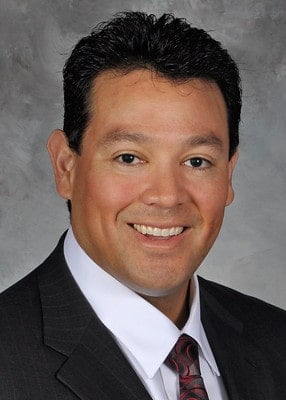Ask the Doctor: What to Know About Brain Tumors
Brain tumors are the most common solid tumor affecting children. Brain tumors are treated by a team approach, like at the Johns Hopkins All Children’s Hospital’s, Neuro-Oncology Program.
The team is comprised of oncologists who specialize in the treatment of tumors affecting the central nervous system, neurologists, pathologists, radiologists, neuropsychologists and neurosurgeons.
Brain Tumor Symptoms to Look For
Symptoms depend on the location of the tumor. Young children tend to get infratentorial tumors (located in the region of the cerebellum, in the back of the head).
These lesions often block the flow of fluid in the brain causing hydrocephalus – too much fluid in the brain, which leads to elevated pressure in the brain. This causes headaches, vomiting and balance problems. Young infants and babies often present with failure to thrive and vomiting.
Tumors that involve the brainstem, often present with cranial nerve deficits – double vision or failure of the eyes to turn together in the same direction, difficulty swallowing, balance and coordination problems, weakness of one side of the face or body, failure to thrive.
As the children age, the tumors present according to their location, size, and how aggressive they are.
Common presentations include nausea and vomiting from elevated intracranial pressure — either from hydrocephalus or the size of the tumor; balance and coordination problems for lesions located near or on the brainstem and cerebellum; weakness, numbness or other neurological deficit related to the location of the tumor.
Older children and adolescents tend to present with worsening headaches and seizures.
Not All Brain Tumors are Cancerous
There is a misconception that the word “tumor” means “cancer,” which is not always true. A tumor is a mass of cells that shouldn’t be there. It could be a low grade or benign lesion that maybe just bears observation; or it could be a highly malignant lesion (cancer) that needs a biopsy or surgical resection.
Brain Tumor Treatment
Once a child is diagnosed with a brain tumor, they require a CT or MRI scan, and their medical team will decide if surgery is needed. The primary goal of surgery is to make a diagnosis to determine the type of tumor.
Another goal is to attempt to remove the entire lesion while preserving neurological function. Often, we achieve a full removal but occasionally, there is some tumor left behind.
The pathology is reviewed and the decision is made whether the patient needs a “second look surgery” to attempt a full removal, or whether the lesion is one that can be treated with chemotherapy, or radiation, or simply followed closely.
Some lesions are not amenable to removal but a biopsy can determine diagnosis.
With any tumor, the most important thing is the pathology — what kind of tumor it is. This determines treatment, whether chemotherapy, radiation, surgery or observation is required.
It’s also important to remember the neuro-oncology team is there along the way to help guide families and put their minds at ease throughout the process.
For more relevant pediatric healthcare information, visit HopkinsAllChildrens.org/Newsroom. You also can download our free Pocket Doc app, which features a symptom checker, parenting advice and other tools for staying in touch with us.

